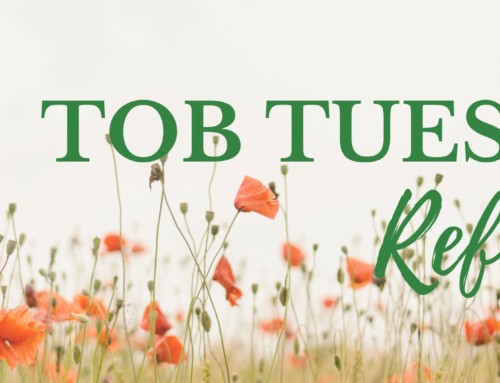Communism, Free-Market Economy, and Self-Regulation
by Katrina J. Zeno, MTS
(Note: This blog was written before the protests and violence exploded in many of our metropolitan areas. These incidences underscore even more the need for a moral conscience and self-regulation, which I highlight in this blog.)
With this blog, I am wading into dangerous waters. I am not an economic or political specialist and so do not have an expert grasp on communism nor free-market enterprise. I ask you, therefore, to please receive this blog as it is – as a blog and not as an Op Ed piece in a newspaper or an article in a prominent magazine, but simply my initial reflections concerning St. John Paul II’s approach to contemporary discussions occurring in our American culture and marketplace. I highlight American because each nation has its own distinctive history and therefore cultural identity. I write within this USA cultural identity and the American pioneering and entrepreneurial spirit rooted deeply within me. I hope these reflections will encourage your own deeper thinking on these issues.
***
I wonder if we truly realize the goals and purposes behind socialism and communism? Do we really think the purpose of life is for all of us to have an equal standard of living and a classless society, i.e., everyone belongs to the “middle class”? Communism takes over industry and land so as to own the means of production and to collectivize the land. In this manner, wages and income are regulated so that “ideally” no one has any more or less than his or her neighbor. There is no free enterprise and no free market. Personal initiative and an entrepreneurial spirit have no place in true communism because they would upset the “balance” of an equal standard of living. As soon as society allows personal initiative and entrepreneurism that results in buying and selling new products or services, the equal-standard-of-living apple cart is upset, and this is considered evil.
While hardcore communism may not be the political preference of most Americans, I sometimes see upcoming generations flirting with a kind of modified socialism. The “good life” is where the government provides for our basic needs (housing, healthcare, education, safety, job security or a modest monthly income) so that we are free to pursue leisure-time activities, interests, travel, and purchase our preferred style of clothes, cars, and gadgets.
This isn’t modified socialism – this is the life-style of nobility spread across the social spectrum, and it’s an impossibility. This approach seeks to make affluence the common standard of living across the board. Affluence, however, by its very nature, requires either the hierarchy of an aristocratic class (bad, very bad!) or the freedom to own our own business, create and provide products and services at non-regulated prices, and then work damn hard to make sure the business is solvent, the product is of high quality, and our business ethics are unquestionable – all without being taxed at outrageously high rates in order to support a normative middle class.
And we are back to where we started – personal ownership and industrious initiative create an unequal standard of living, which are also labeled bad, very bad! So, which way do we go?
We were founded precisely on an entrepreneurial spirit that desired the freedom to worship God AND the freedom to organize society and the common good around a direct exchange of goods and services without the constant interference or over-regulation by “Big Brother.”
As Americans, we go back to our roots, back to our founding heritage. In the United States, our cultural memory is not one of aristocratic power and feudal repression. Neither is it one of dynastic or tribal lords vying for power. We were founded precisely on an entrepreneurial spirit that desired the freedom to worship God AND the freedom to organize society and the common good around a direct exchange of goods and services without the constant interference or over-regulation by “Big Brother.” And the foundational reality that facilitated this new form of societal living and working was not the desire to maintain everyone at the same economic level, but a moral conscience.
 The element of a moral conscience is the mainstay in both Pope John Paul II and Cardinal Ratzinger’s thinking and writings on economics and politics. John Paul II’s pivotal impact on communism lay in his repeated insistence on the spiritual rights of every person. These rights are three-fold: 1) the right to know truth rather than indoctrination of beliefs by the ruling political party; 2) the right to freedom of religion and worship of God in the public sphere; and 3) the right to equal human dignity, which is not the same as equal economic income. Only where freedom of religion exists can the human person come to know the full truth about his human nature being created by God and for an intimate relationship of trust, love, and goodness with God – and thus also a relationship of trust, love, and goodness with his neighbor. From this springs the moral conscience.
The element of a moral conscience is the mainstay in both Pope John Paul II and Cardinal Ratzinger’s thinking and writings on economics and politics. John Paul II’s pivotal impact on communism lay in his repeated insistence on the spiritual rights of every person. These rights are three-fold: 1) the right to know truth rather than indoctrination of beliefs by the ruling political party; 2) the right to freedom of religion and worship of God in the public sphere; and 3) the right to equal human dignity, which is not the same as equal economic income. Only where freedom of religion exists can the human person come to know the full truth about his human nature being created by God and for an intimate relationship of trust, love, and goodness with God – and thus also a relationship of trust, love, and goodness with his neighbor. From this springs the moral conscience.
We often speak about “conscience” as if it were simply a capacity for choosing shaped according to one’s own self-chosen values. In other words, through my “conscience,” I decide what’s good for me and what’s not beneficial for me. This is diametrically opposed to John Paul II’s understanding of conscience, which is rooted in St. Thomas Aquinas’ understanding of conscience, which is rooted in a classical Greek understanding of human nature as having a definitive end or telos.
Conscience is not like an internal referee making spontaneous judgment calls – Good for me! Bad for me! Rather, conscience comes with a built-in universal moral compass aimed toward the Good that we must develop and strengthen. This means we can develop our moral conscience well or we can develop it poorly – or it can be malformed or manipulated by cultural propaganda and circumstances such as an atheistic government and educational institutions.
Perhaps a metaphor would help. Every human person is born with vocal cords that are dedicated or directed toward speaking and singing. However, most of us don’t emerge from the womb singing Handel’s Hallelujah Chorus. Our vocal capacity or skill develops over time from initial noises to more differentiated sounds to squeals of delight to “mama” or “dada” to individual words, phrases, sentences, paragraphs, and speeches. Your vocal cords are not a neutral capacity for making any kind of noises you want the rest of your life. They have the specific end or purpose of permitting you to reach the goal of human communication involving specifically formed sounds we call words.
Likewise, our human conscience isn’t simply a neutral ability to decide whatever we want for the rest of our lives. Rather, human conscience is  dedicated or directed to knowing the moral good and inspiring our will to choose it. It permits us to reach the highly difficult goal of both our individual good and the common good through a right use of our freedom. Human conscience, we could say, is the “vocal cord” of human morality.
dedicated or directed to knowing the moral good and inspiring our will to choose it. It permits us to reach the highly difficult goal of both our individual good and the common good through a right use of our freedom. Human conscience, we could say, is the “vocal cord” of human morality.
Why does all of this even matter? Because conscience is what imposes on us (yes, I just used the politically incorrect word “imposes”) moral responsibility. And it is moral responsibility that makes a free-market economy and an entrepreneurial and peaceful society possible. A free-market economy and an entrepreneurial and peaceful society require self-regulation rather than reams and reams of government-imposed regulation. We need self-regulation to keep the interests of others in mind and not just our own interests (or those of our family or “tribe”). We need self-regulation to refrain from producing a cheaper but shoddy product or completing our work task at just the bare minimum. We need self-regulation within the hierarchical structures that entrepreneurialism and a free-market economy create so that one’s abundance is voluntarily given to those who have less. (And, given the events of this past weekend, we need self-regulation to protest peacefully rather than violence begetting violence and looting, thus inciting police or military-regulated lockdowns.)
John Paul II’s answer to communism and socialism’s attempts to flatten out the economic standard of living in the name of human dignity was not a political revolution, but a revolution of the human spirit.
John Paul II’s answer to communism and socialism’s attempts to flatten out the economic standard of living in the name of human dignity was not a political revolution, but a revolution of the human spirit. He repeatedly appealed to mankind’s universal dignity of being made in the image and likeness of God, which guaranteed a right to moral freedom. This moral freedom could never be achieved by an earthly utopia based on false economic and human principles, but needed to rise above class struggle to the true struggle for the right to know the truth, the freedom to choose it, and thus assume the moral responsibility this entails.
In a culture of objective truth and authentic religion, the exercise of human freedom and moral responsibility would not lead to an elimination of hierarchical distinctions, but to those distinctions being saturated with love, goodness, and trust along with a keen interest in the common good of all rather than one’s personal pursuit of affluence. As someone who occupied one of the highest positions in the “hierarchy of religion” in the world, Pope John Paul II never tired of witnessing to the truth of the words he penned, for to him, to reign was always to serve – in love, trust, and generous self-giving goodness. And remember, like St. John Paul II, you are created to be a loving, trustworthy, and generously good gift!
[These reflections were sparked by simultaneously reading A Life with Karol by Cardinal Stanislaw Dziwisz and Lesson in Hope by George Weigel as a way of honoring St. John Paul II’s 100th birthday. I then also picked up Cardinal Ratzinger’s book of essays entitled, Western Culture – Today and Tomorrow.]
© Katrina J. Zeno, MTS
(Please “share” this blog – and invite your friends to like the JPII Resource Center FB page. Thank you.)




